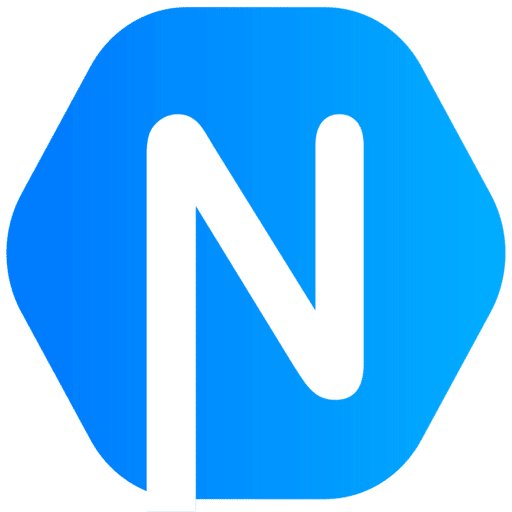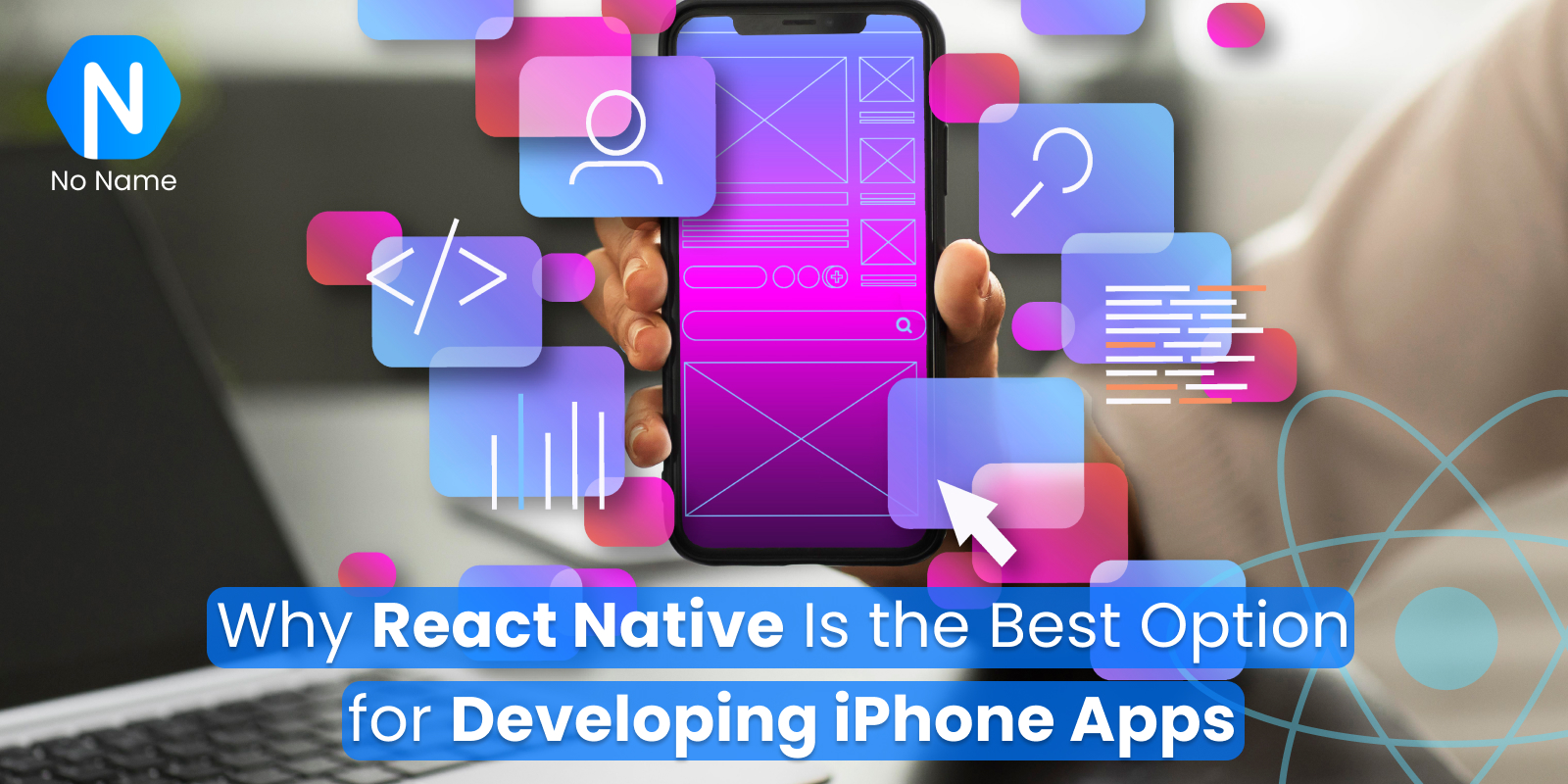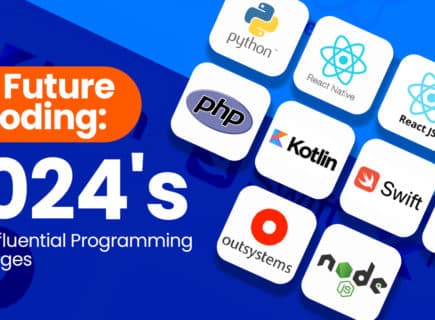The world of mobile app development has witnessed significant growth over the years. With the popularity of smartphones, there’s a growing demand for high-quality mobile applications, especially for iOS devices like the iPhone. When it comes to developing apps for iPhones, developers have several options at their disposal, including React Native, Swift, and Objective-C.
In this article, we will explore why React Native stands out as the best option for developing iPhone apps compared to Swift and Objective-C. We will also shed light on why choosing the right development team, such as No Name, can make a world of difference in delivering premium app development services.
The Rise of React Native
React Native is an open-source framework developed by Facebook that allows developers to build cross-platform mobile applications using JavaScript. It was first released in 2015 and has since gained immense popularity due to its versatility, performance, and developer-friendly features. React Native leverages the power of React, a JavaScript library for building user interfaces, to create native-like experiences on iOS and Android devices.
Now, let’s delve into why React Native has earned its reputation as the best option for iPhone app development.
React Native is an open-source framework developed by Facebook that allows developers to build cross-platform mobile applications using JavaScript and React. It gained immense popularity in the mobile app development community for several compelling reasons:
Efficiency and Cost-Effectiveness
One of the primary reasons why React Native is an excellent choice for iPhone app development is its efficiency and cost-effectiveness. When developing native iOS apps, developers often need to write separate codebases for iOS and Android, resulting in higher development costs and longer time-to-market. React Native, on the other hand, enables the development of cross-platform apps with a single codebase. This approach significantly reduces development time and costs, making it an attractive option for businesses of all sizes.
Native Performance
Performance is a critical factor in the success of any mobile app. iPhone users expect smooth and responsive experiences, and React Native delivers just that. React Native apps are not web-based; instead, they compile to native code, providing a performance comparable to apps written in Swift or Objective-C, the two primary languages for iOS app development.
React Native achieves native-like performance by using native components and modules. It offers direct access to native APIs, enabling developers to fine-tune their apps for the best user experience. This level of control and performance is a significant advantage over some other cross-platform frameworks.
Large Community and Ecosystem
React Native benefits from a vast and active community of developers, which is a crucial asset for any technology. This community contributes to the framework’s continuous improvement, shares knowledge, and provides valuable resources such as libraries and plugins. The large community ensures that React Native remains up-to-date with the latest iOS advancements and best practices, making it a reliable choice for long-term app development projects.
Hot Reloading
Another noteworthy feature of React Native is its “hot reloading” capability. This allows developers to see the effects of code changes in real-time without restarting the app, significantly speeding up the development and debugging process. Swift and Objective-C do not offer this feature, making React Native a more developer-friendly choice.
Fast Development with Reusable Components
React Native’s component-based architecture simplifies development, allowing developers to focus on building features rather than dealing with low-level details. React Native’s ability to allow developers to create reusable UI components, not only speeds up development but also maintains consistency across the app’s design. These components can be shared across different parts of the app or even between different projects, saving valuable development time and effort.
Comparing React Native to Other iOS Development Options
Swift: Apple’s Native Language
Swift is Apple’s proprietary programming language designed specifically for iOS, macOS, watchOS, and tvOS development. While Swift has its merits, it may not always be the best choice for every project. Here are some reasons why React Native surpasses Swift in certain scenarios:
- Learning Curve: Swift is a relatively new language, and developers need time to become proficient. In contrast, JavaScript, used in React Native, is a widely adopted language with a shallower learning curve.
- Cross-Platform Development: Swift is excellent for building native iOS apps, but if your goal is to create apps for both iOS and Android, React Native offers a more efficient solution.
- Development Speed: React Native’s hot reloading and code reusability enable faster development cycles, which can be a crucial factor in meeting tight project deadlines.
Objective-C: The Legacy Language
Objective-C has been the traditional language for iOS app development for many years. While it has a solid history, React Native provides several advantages that make it a superior choice in modern app development:
- Complex Syntax: Objective-C uses a complex syntax that can be challenging for developers to grasp, especially those coming from other programming languages.
- Limited Code Reusability: Developing cross-platform apps with Objective-C is not practical, as it’s primarily designed for iOS development only. React Native’s cross-platform capability is a clear advantage here.
- Maintenance and Compatibility: Legacy code written in Objective-C may require frequent updates and maintenance to remain compatible with the latest iOS versions, whereas React Native simplifies this process.
In conclusion, React Native stands out as the best option for developing iPhone apps for several reasons:
- It offers efficiency and cost-effectiveness with a single codebase for both iOS and Android.
- It provides native-like performance and access to native APIs.
- It benefits from a large and active community, ensuring continuous improvement and support.
- It promotes the creation of reusable components, saving development time and effort.
- It offers hot reloading for a more efficient development and debugging process.
The No Name Advantage
When it comes to choosing the right development team for your iPhone app project, No Name stands out as a top-tier choice. Here are some reasons why No Name’s React Native developers are the best in the business:
- Expertise: No Name’s team of developers possesses a deep understanding of React Native, ensuring that your app will be developed with the highest level of expertise.
- Custom Solutions: No Name tailors its services to meet your specific needs, providing custom solutions that align with your business goals and objectives.
- Quality Assurance: No Name places a strong emphasis on quality assurance, conducting rigorous testing to deliver a bug-free, top-notch application.
- Cost-Effective: No Name’s cost-effective pricing models ensure that you get the best value for your investment without compromising on quality.
Crux
In conclusion, React Native emerges as the best option for developing iPhone apps compared to Swift and Objective-C due to its code reusability, native performance, large community, and fast development cycle. While Swift and Objective-C have their strengths, React Native’s cross-platform capabilities and efficiency make it a standout choice for modern app development.
When considering the development of your next iPhone app, remember that the choice of development team is equally important. No Name’s team of expert React Native developers can provide premium app development services that meet your business needs and exceed your expectations. Choose No Name for your next iPhone app project and experience the difference for yourself.































